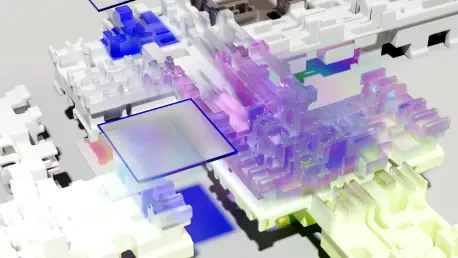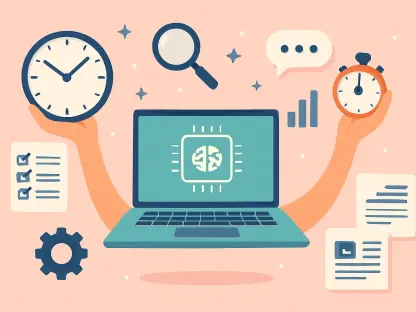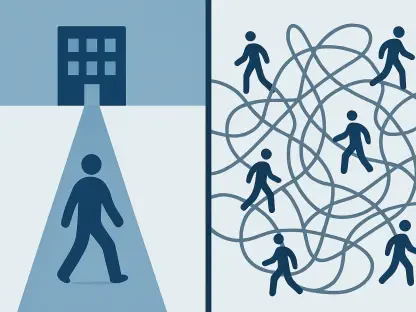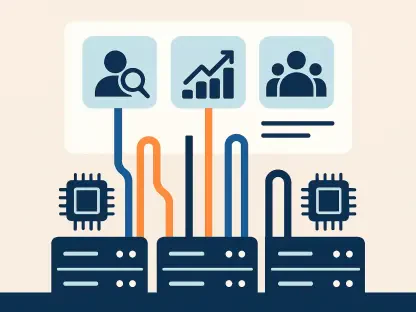In today’s rapidly evolving digital landscape, the human resources sector is facing a revolutionary transformation driven by artificial intelligence (AI). As companies strive to stay ahead in a competitive market, integrating AI into HR processes becomes a strategic necessity. It reshapes traditional practices, enhances employee experiences, and drives operational excellence. This guide offers best practices for leveraging AI to redefine HR, focusing on optimized recruitment and performance management while fostering collaboration between human talent and AI tools.
Significance of AI Integration in HR
Embracing AI in HR is becoming increasingly crucial as organizations seek to enhance employee engagement and streamline operations. AI tools offer substantial benefits, such as accelerated recruitment processes, precise performance evaluations, and strategic workforce management. These advantages compel HR departments to transition from administrative task managers to experience architects focusing on quality and outcomes.
Anticipating these changes enables HR to position itself as a central player in organizational strategy. By adopting AI, HR professionals can offer personalized employee development pathways while reducing repetitive administrative tasks. This shift in focus contributes to increased employee satisfaction, retention, and productivity.
Systematic Approach to AI Implementation
Successfully integrating AI in HR demands a structured plan, ensuring seamless adoption and maximum benefits. Organizations must assess current HR processes, identify areas for improvement, and determine which AI solutions best fit their needs. A clear implementation strategy, coupled with ongoing employee training, supports this transition.
As AI technologies evolve, HR must adapt quickly to ensure its functions align with strategic business goals. Establishing cross-functional partnerships with IT and operations teams ensures a robust infrastructure for AI deployment, while ongoing performance assessments help fine-tune implementation, maximizing return on investment.
Enhancing Recruitment with AI
AI has revolutionized recruitment by automating resume screening, candidate sourcing, and interview scheduling. Implementing AI in these areas enhances accuracy, speed, and efficacy, transforming recruitment into a streamlined, data-driven operation. By analyzing large data sets, AI identifies the best candidates based on specific criteria, reducing biases and increasing diversity.
Example of AI-Driven Recruitment Success
Global tech companies are at the forefront of AI-driven recruitment strategies. One such organization implemented AI algorithms to assess candidates’ skills and cultural fit, resulting in a 30% reduction in hiring time and improved retention rates. These algorithms provided actionable insights, tailored candidate experiences, and reduced attrition through better matching.
AI in Performance Management
Integrating AI into performance management allows organizations to optimize employee evaluations and development strategies. AI tools can offer unbiased feedback, personalized learning resources, and data-driven insights into individual and team performance. This approach shifts focus from manual review processes to strategic growth.
Case Study on AI-Enhanced Performance Reviews
An exemplar financial firm harnessed AI to overhaul its performance review system. By using AI analytics, the firm identified performance trends and provided feedback aligned with corporate goals. This strategy highlighted areas for improvement and skill development, resulting in enhanced productivity and employee satisfaction.
Final Thoughts on AI’s Role in HR
The transformative impact of AI on HR emphasizes the evolution from administrative functionalities to strategic experience design. Despite challenges, successful implementation of AI in HR provides significant competitive advantages. Organizations must prepare for this shift by ensuring readiness and continuous learning. Addressing ethical considerations in AI deployment is crucial to fostering trust and transparency as AI becomes an integral part of HR processes.
Forward-looking companies tapping into AI’s potential to redefine HR practices focus on creating meaningful human experiences, fostering collaboration between human talent and AI agents, maximizing efficiency, and driving strategic outcomes in an increasingly AI-driven world.









